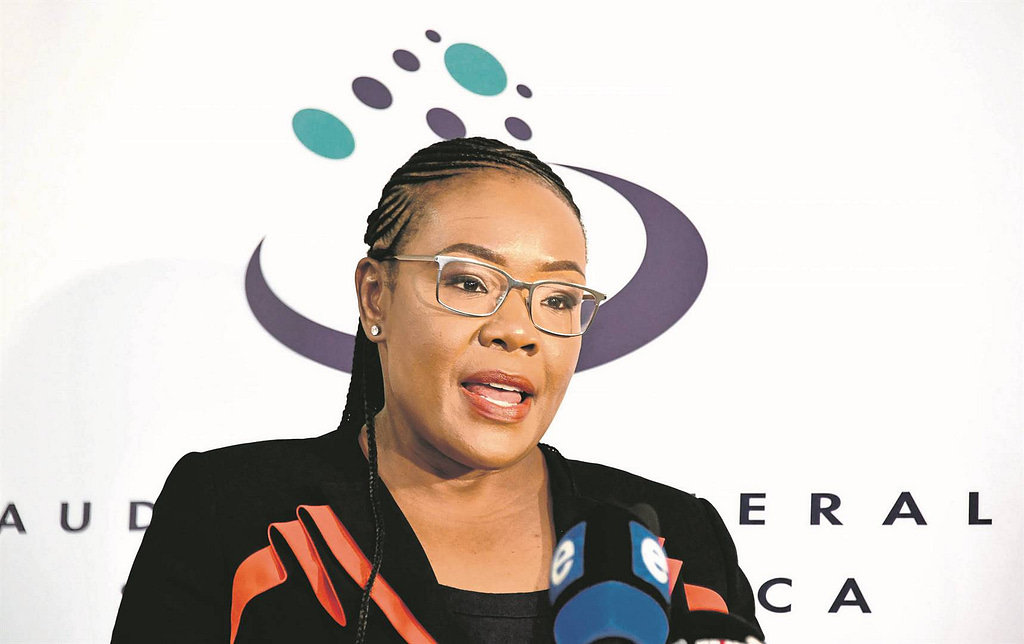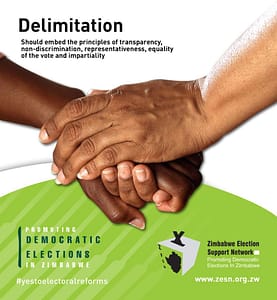State institutions are pushing back on negative audit findings

This is a concern, according to Auditor-General Tsakani Maluleke. Photo: File
Government institutions are pushing back on negative audit findings, demanding more than they deserve.
This is a concern, according to Auditor-General Tsakani Maluleke.
Speaking to City Press on Thursday, following the tabling of the 2020/21 Public Finance Management Act (PFMA) general report, Maluleke said a small number of government institutions were taking this action.
The PFMA report focuses on public entities – state-owned enterprises (SOEs), and national and provincial government departments.
Maluleke said an indication of such institutions was those that consistently submitted their audits after the deadline.
According to her report, by October 15 – the cut-off date for audits – there were still 42 outstanding audits (accounting for 10%).
Of those, 23 were outstanding because they had not submitted financial statements, or had done so late.
However, said Maluleke, instances of bullying and intimidation had diminished. The A-G said:One of the things to which I can attribute this is that we benefit from being able to work remotely, so the ability of people to intimidate isn’t as great as it would have been, had we been present in those environments.
“What we do experience, though, are pushbacks on audit findings. I suppose it’s natural for auditees to want to get the best audit outcome,” she said, adding that, although it was expected that there would be tension, “unconstructive” resistance was unnecessary.
“They push back just to get a better audit outcome, without having done the work,” she explained.
Instead, she said, auditees were spending months fighting instead of fixing their environments now for next year’s audit.
QUESTIONABLE STATEMENTS
Maluleke said only 43% of the statements that were initially submitted were credible, despite auditees having been given a number of opportunities prior to the release of the report to sort them out.
This number increased to 71% following the Auditor-General’s intervention.
A total of 679 departments and public entities were audited, but the report focused on 425 auditees.
Of these, 115 (48 departments and 67 SOEs) obtained clean audits, compared with a slightly lower 109 the previous financial year.
The 115 were responsible for a R1.9 trillion expenditure budget.
“We were able to confirm that the statements they gave us were right. The rest were approved because we gave them a chance to correct them. It’s okay to do that, especially if it’s within a reasonable period, because we need to finish our audit on time,” said Maluleke.
She said the law allowed her office to audit in terms of the PFMA and report back within two months, while it had three months to audit in terms of the Municipal Finance Management Act at the end of a financial year.
This allowed audit reports to be tabled with government institutions’ financial and performance reports in Parliament for oversight processes.
A CULTURE CHANGE WILL ADJUSTCONVERSATIONS
Maluleke said there was a need to focus less on audit outcomes and more on building resilient institutions. A change of culture was needed so that auditees put controls in place and played by the rules to ensure that credible information was submitted.
“This stuff isn’t so complex. It’s really about making sure that you systematically and progressively build the controls and the discipline that help you do that. When you reach that point, you know what’s going to happen. The accountability conversations between public institutions and public representatives in the form of Parliament or provincial legislature will change,” she said.
The change could be more about the quality of service delivery, and the country could reach the point of not having to worry about audit findings.
She said:You can have meaningful conversations about what impact these institutions are having and whether it’s consistent with their mandate.
BIG FOUR ‘FAILURE’
Work was needed to improve the way finances were managed by the departments of health, education, human settlements and public works, said Maluleke.
This, she said, showed in terms of service delivery, as a failure to manage finances led to the inability to allocate resources effectively.
Performance information that was not credible, but submitted for auditing, indicated problems in a department’s planning and allocation of responsibilities to different people and facilities in its environment.
She said small things were needed, such as ensuring that people were doing what was expected of them and driving accountability on an ongoing basis, so that delivery was to the required standard.
“If you don’t have those disciplines, you’re going to struggle to demonstrate how you deliver services. When we look at the key service delivery departments, we see that a lot of work needs to be done – especially among those with the biggest budgets. They need to ensure that they manage those budgets in a way that drives proper, effective spend and service delivery.”
‘DIMINISHING TRUST’
Maluleke said auditees that were receiving disclaimers due to their failure to submit evidence supporting their financial records continued to be lowlights.
She said this affected her team’s role as auditors because the process was between the citizens, the public representative and the stewards or custodian of public funds.
The only way citizens knew that their money was being spent correctly was through auditors’ confirmed government reports. Receiving a disclaimer meant that an auditee could not account for its funds. Maluleke said:An auditor is there to build trust and enable citizens to feel comfortable with what they’re being told by the custodian of public funds. If an auditor can’t do that, then trust diminishes – and, for us, that’s a big problem.
“We worry about disclaimer audit opinions, especially repeated ones. We worry about the non-submission of financial statements. If public entities repeatedly fail to submit, or submit financial statements that receive a disclaimer, it tells you that there’s chaos in the way those institutions are being run,” said Maluleke.
–-City Press






